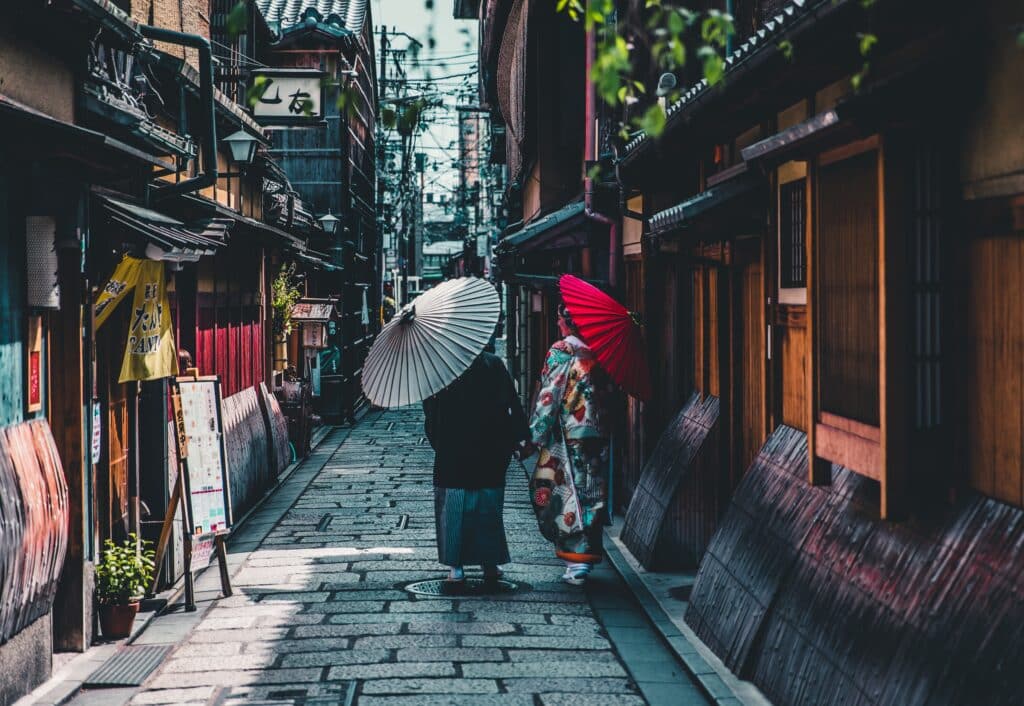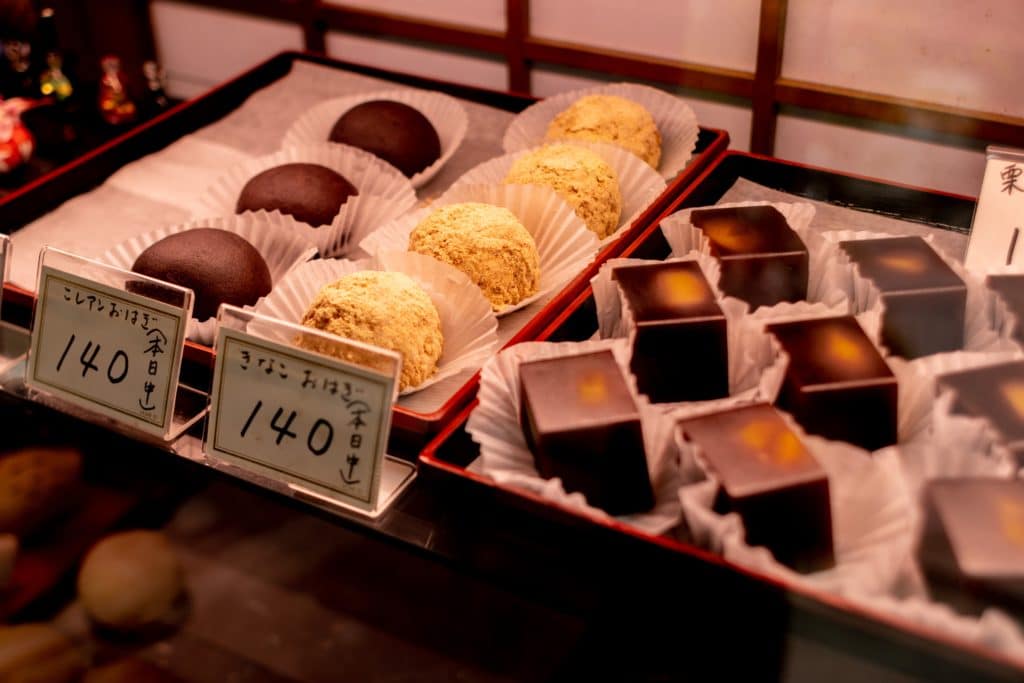Valentine’s Day is all about love around the world. The Japanese celebrate Valentine’s Day in two ways: Valentine’s Day and White Day. Both have their own unique traditions and ways to celebrate.
In this Remitly guide, we’ll look at how people observe Valentine’s Day in Japan with gift-giving and provide tips on how to give and receive Valentine’s Day gifts politely.

Valentine’s Day
Valentine’s Day is celebrated in Japan on February 14th, like in many other countries. However, it’s celebrated a bit differently than in Western countries.
Instead of purchasing presents for one special person they have a romantic relationship with, Valentine’s Day in Japan focuses on women giving gifts to men.
Most Valentine’s traditions focus on romantic partners or interests in the Western world. But in Japan, women will give gifts to all of the important men in their lives, including fathers, brothers, and friends.
History
Japanese Valentine’s Day is a fairly modern celebration and was introduced into Japanese culture in the 20th Century in the 1950s. It quickly became commercialized, and you could find heart-shaped and various types of chocolate across major retail and department stores.
Gifts
What kind of gifts do girls give out? The answer is simple: Valentine’s Day chocolates. Cards and flowers hold less importance. Instead, it is all about sweets. Heart-shaped chocolates have become the traditional gift.
As mentioned, women give gifts to all of the important men in their lives. However, they give out two different kinds of chocolate:
- honmei-choco or 本命チョコ
- giri-choco or 義理チョコ, which translates to obligation chocolate or obligatory chocolates
Honmei-choco is for the man you love, a boyfriend, or a husband. A woman would also give out honmei chocolate to men who they have a romantic interest in. It’s a way of sharing their true feelings for a special person so they can be in a relationship with them.
For example, giri-choco is for the platonic relationships that Japanese women have with family members, male friends, and coworkers. When women give heart-shaped chocolates to their female besties, it’s known as tomo-choco.
If you think giving chocolates to all of the men in your life would get expensive, you would be right. You could be spending thousands of yen depending on how many acquaintances and coworkers you have. Check out this article to learn more about the Japanese Yen.
Traditionally, on this holiday, there is an obligation to give out gifts. It is not optional. You may be offending some people in your life if you decide to skip out on giving out gifts.
That doesn’t mean you must spend a fortune on friend chocolate for Valentine’s Day, though. Not all chocolates given as a romantic gesture or to acquaintances and co-workers come from the store.
Many women purchase chocolate-making supplies and create delicious homemade treats for their romantic partners, work colleagues, and the other people on their Valentine’s gift lists.
Increasingly, Japanese men aren’t entirely off the hook either. Over the last decade, it has become more common for men to give gyaku-choco or reverse chocolate to women for whom they have romantic feelings.
Although it’s not the traditional way to observe Valentine’s Day in Japan, some people also now purchase expensive chocolates such as jibun-choco or self chocolates. Buying a gift for yourself is seen as an act of self-care and a way to treat yourself to something special on Valentine’s Day.

White Day in Japan
White Day in Japan is when the roles reverse one month later. On March 14th, it is the men’s turn to give women gifts for a different version of Valentine’s Day.
Men now have a social obligation to give gifts to all ladies in their lives, not just romantic partners. If you received chocolate on Valentine’s Day in Japan, you should be returning the favor on White Day by giving it back to your female friends.
History of White Day in Japan
Like Valentine’s Day, White Day is also a more recent Japanese celebration. First advertised as “Marshmallow Day,” this holiday was picked up in the 1970s.
In 1978, a confectionery company called Ishimura Manseido was inspired to return the favor to women. They created marshmallow candies filled with chocolate that men could buy and give out to the women in their lives.
Some years later, Marshmallow Day became White Day because white symbolizes love and purity.
All kinds of gifts for White Day
Today, men are not only expected to give out marshmallows on this special day. In fact, men are expected to buy 2 to 3 times the amount women spend on Valentine’s Day gifts in Japan.
Here are some other gifts that men may give for White Day in Japan:
- Confectionery treats like candy
- Dessert
- Perfume
- Jewelry
- Handbags
The value of the gift you plan to give mainly depends on your relationship with the woman. The closer or more romantically linked you are, the more expensive the present is.

Are Valentine’s Day and White Day losing popularity?
The short answer is yes. Being obligated to give presents to multiple people in your life can be very expensive, stressful, and tedious. Women have been giving out less and less chocolate each year on Valentine’s Day in Japan, so in return, men have been participating less in the White Day festivities.
White and Valentine’s Days focus more on consumerism than culture or traditions, so it is not surprising that it is losing popularity in Japan in recent years.
Slowly, the way that Japan celebrates the holiday is changing. Some people no longer give presents for Valentine’s Day in Japan. Instead, they may take a cue from couples in Western countries, plan the perfect date, and simply present a small gift to only their significant other.
Gift-giving etiquette in Japan
Now that you know the ins and outs of giving tomo choco, honmei choco, giri choco, and other chocolates for Valentine’s Day in Japan, let’s turn our attention to just how to give presents to your loved ones.
On Valentine’s Day and throughout the rest of the year, people in Japan follow very specific etiquette rules when giving presents. These tips will allow you to graciously give presents for Valentine’s Day and other holidays celebrated in Japan.
Gift wrapping is a must
Whether the gift is chocolates or something else, presents in Japan traditionally come in gift wrap. For a traditional presentation, wrap your Valentine’s chocolate in furoshiki, wrapping paper made out of decorative fabric. Gift bags and paper wrapping are also acceptable.
Give and receive presents with two hands
When you hand your chocolates to the recipients, use two hands and accept any reciprocal presents with both hands. Reaching for things with one hand is considered to be rude in Japan.
Choose the right number
The number in the package is important if you’re providing an assortment of chocolates like bars or truffles. Avoid giving chocolate in groups of four, as the number is considered unlucky.
A better choice is to provide chocolate in pairs or groups of three or eight, which are luckier numbers.
Consider color carefully
In the West, red is the most common color for Valentine’s Day. However, red is associated with funerals in Japan. When choosing wrapping for your chocolates, consider green hues, which symbolize good fortune.
Wait until later to open your gift
When it comes time to celebrate Valentine’s Day, set aside any presents you receive. In Japan, opening every gift privately rather than in front of the recipient or other people is customary.
Try virtual gift-giving for Valentine’s Day
If you are away from home for Valentine’s Day, you can still show your loved ones how much they mean this year by sending money. A digital transfer is quicker and easier to send than flowers, Valentine’s Day chocolates, and homemade presents, and Remitly makes it safe and simple to do.